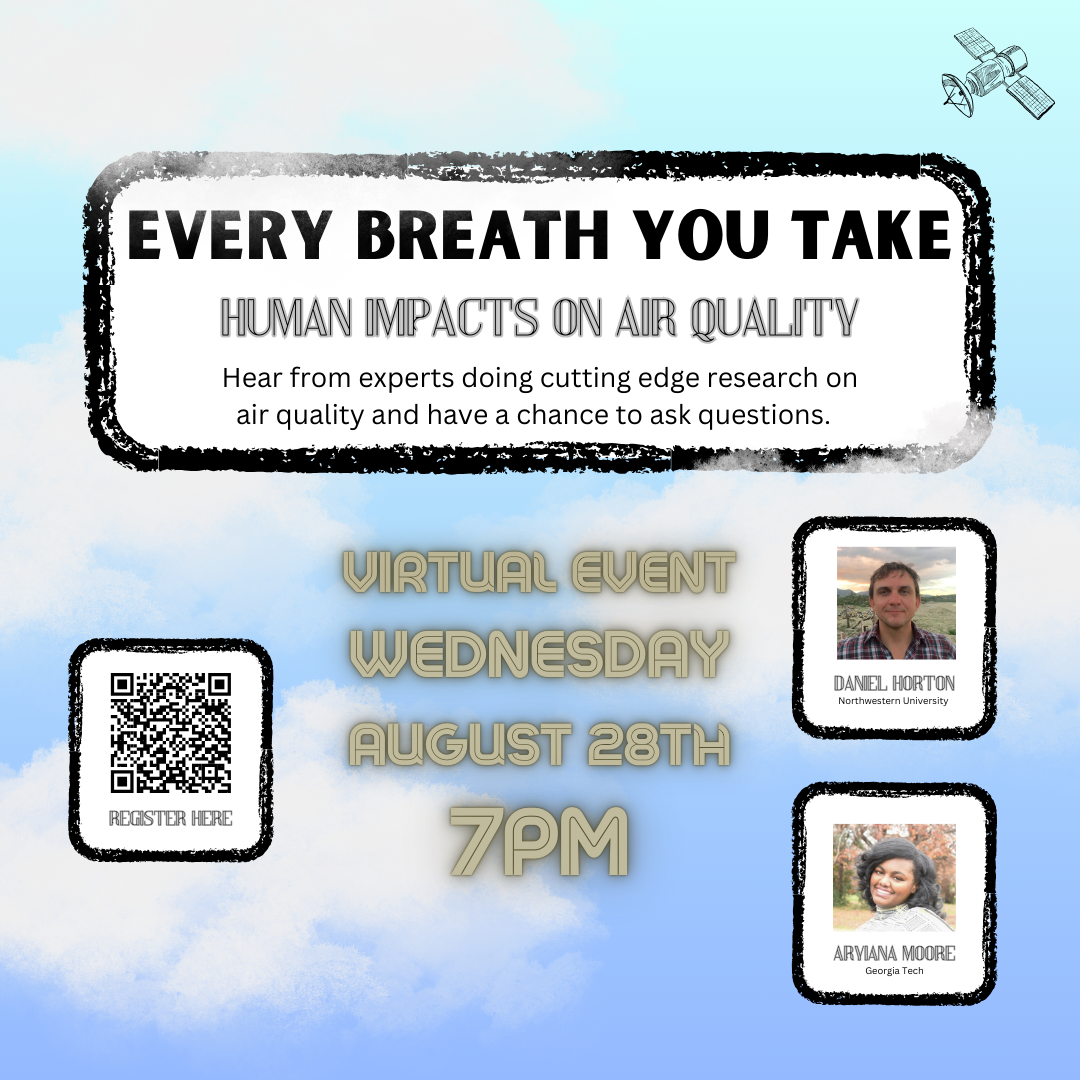How do we measure air quality? What causes poor air quality? Are there particular things humans do that impact air quality the most?
The quality of the air we breathe every day can have large impacts on our health and wellness. Scientists are working to learn more about what exactly causes poor air quality in certain areas as well as working to find solutions to help improve the air quality in the places we live and work. Join C2ST virtually on Aug 28th from 7:00 pm to 8:15 pm as we talk with Dr. Daniel Horton, Associate Professor of Earth & Planetary Sciences at Northwestern University, and Aryiana C Moore, 4th year PhD candidate in the School of Civil and Environmental Engineering at Georgia Institute of Technology to find out more. We will hear about their current research as well as get a chance to ask questions.
Event Recording – https://www.youtube.com/watch?v=-yKqF4VXAPo
Further Exploration Resources
- For more information on reliable air purifiers https://ahamverifide.org/directory-of-air-cleaners/
- For more information on air quality models in Chicago https://www.wbez.org/environment-public-health/2023/04/14/northwestern-tool-shows-pollution-hotspots-in-chicago & https://agupubs.onlinelibrary.wiley.com/doi/10.1029/2022JD037942
- For more information on how electrifying vehicles can impact air quality https://insideclimatenews.org/news/20092023/northwestern-study-great-lakes-electrifying-trucks/ & https://www.nature.com/articles/s41893-023-01219-0 & https://iopscience.iop.org/article/10.1088/2634-4505/acf60d
- For more information about the new North American geostationary air quality satellite, TEMPO, see https://tempo.si.edu/data_for_public.html.
- To get real-time information about air quality in your area, visit https://www.airnow.gov/. Note that information may not be available for certain rural areas.
- If your location is not available on AirNow, check AccuWeather, https://www.accuweather.com/. Note that AccuWeather may not be as accurate as AirNow.
- For more information about recent air quality research, see the news section of the NASA Health and Air Quality Applied Sciences Team (NASA HAQAST) website, https://haqast.org/recent-news/, or the news section of the Atmospheric Emissions and Reactions Observed from Megacities to Marine Areas (AEROMMA) portion of the National Oceanic and Atmospheric Administration (NOAA) Chemical Sciences Laboratory website https://csl.noaa.gov/projects/ages/news/.
Event Details
Wednesday, August 28th, 2024 from 7:00 – 8:15 pm CT, C2ST Facebook Live & C2ST YouTube TV.
Please register in advance to get the most up-to-date information before the event and follow C2ST on Facebook and YouTube to receive notifications when the live program starts.
We are dedicated to providing an inclusive environment for everyone. Please respect diversity in individuals and cultures.
Notice: As a guest of the Chicago Council on Science and Technology (C2ST), you agree to be photographed, videotaped, or filmed and grant C2ST permission to put the finished footage/photography to any uses that it may deem proper including marketing, advertising (print, radio, and television) and PR-related activities.



